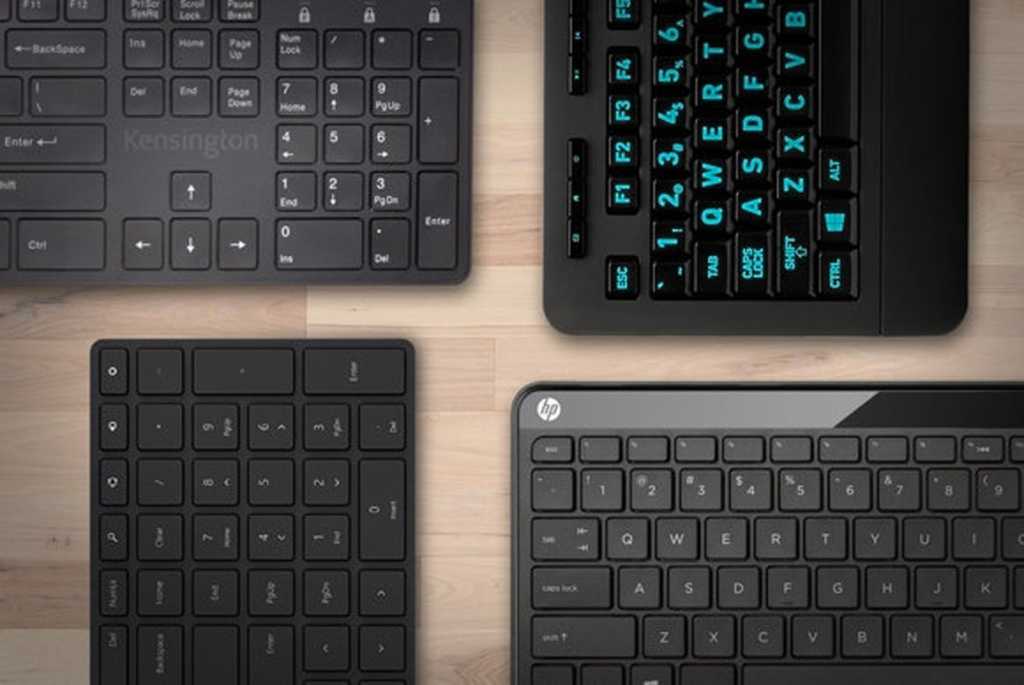In 2024, there’s no reason you can’t have a wireless keyboard anymore. From the most complex mechanical boards to the sleekest designer sets to the flashiest gamer machines, and everything in between, there are plenty of options for wireless excellence. That even includes keyboards for budget buyers — you can find a great pick in every category for well under three-digit prices.
We’ve spent hours and hours using each model, banging away on our reviews, surfing the web, and keeping up on social media to bring you a list of the very best wireless keyboards around. For example, the Logitech Wave Keys isn’t our pick for the best wireless ergonomic keyboard, even though it’s a fairly good option and a great value.
While there’s no one-size-fits-all keyboard, our recommendations aim to help you make an informed decision based on your own personal needs. After you’ve perused our best picks, be sure to check out our buying advice at the end to help you learn what to look for when shopping for a wireless keyboard.
Why you should trust us: PCWorld has been the go-to name for personal computer news and reviews for over 40 years. And as the writer of this roundup, and the reviewer of most of the keyboards on this list, I can assure you they’ve been thoroughly tested by people who are absolutely obsessed with keyboards.
Every single keyboard on this list has been used by an expert, put through its paces for features and reliability, and carefully considered against the alternatives. We’ve tested every facet of the boards, even programming and complete disassembly for those that support it.
For a more in-depth look at how we test keyboards of every kind, check out our dedicated article covering our keyboard review process.
Updated May 10, 2024 to include a new recommendation for the best wireless keyboard for travel: the Nuphy Air V2. This compact mechanical keyboard proves that you don’t need to sacrifice quality or features in exchange for a portable form factor. See our summary of the Nuphy Air V2 below to learn why we are so smitten with this stylish and capable board.
Logitech MX Keys S Wireless Keyboard – Best overall wireless desktop keyboard
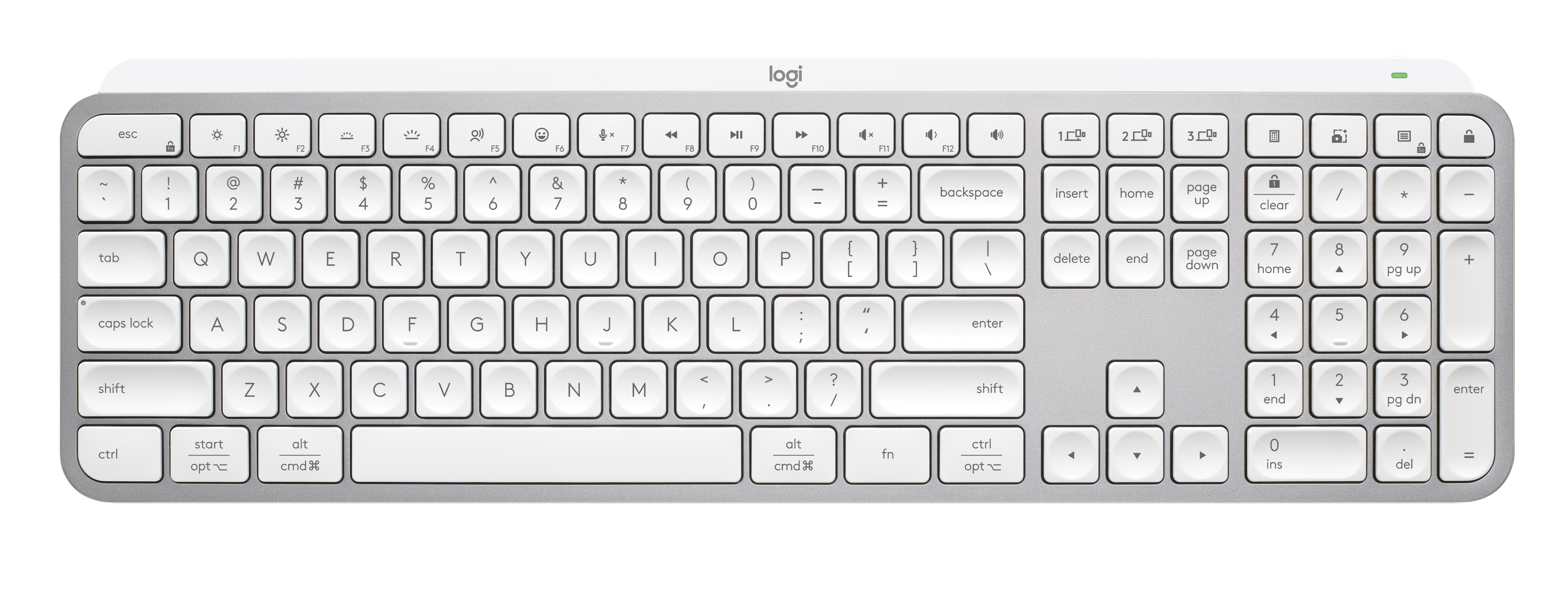
Pros
- Great typing experience
- Customizable keys
- Long battery life
- Auto-dimming backlight
Cons
- No height adjustment
- Wireless can get choppy in crowded environments
Why I like the Logitech MX Keys S
Logitech’s top-of-the-line keyboard design returns in an S variant, this time with an updated Bolt multi-device receiver and a new auto-adjusting backlight feature. The typing experience is as good as it was in the original model, and it’s even a tiny bit cheaper, so this upgrade is a win-win if you like your keyboards thin and stylish.
Just be aware that dozens of Bluetooth devices in the vicinity might bog it down. If you prefer your Logitech boards a little more clicky-clacky, check out the MX Mechanical variant. This design is also available in a smaller “60%” model — see below.
Who should buy the Logitech MX Keys S
If you want one of the most stylish keyboards around that isn’t mechanical, and one that effortlessly works with multiple devices, this is it. The MX Keys is also shockingly quiet, so it’s a good choice for crowded offices. But it you want a longer, more traditional key travel or an ergonomic layout, there are better options out there.
Logitech MK540 Advanced Wireless Keyboard and Mouse Combo – Best value proposition
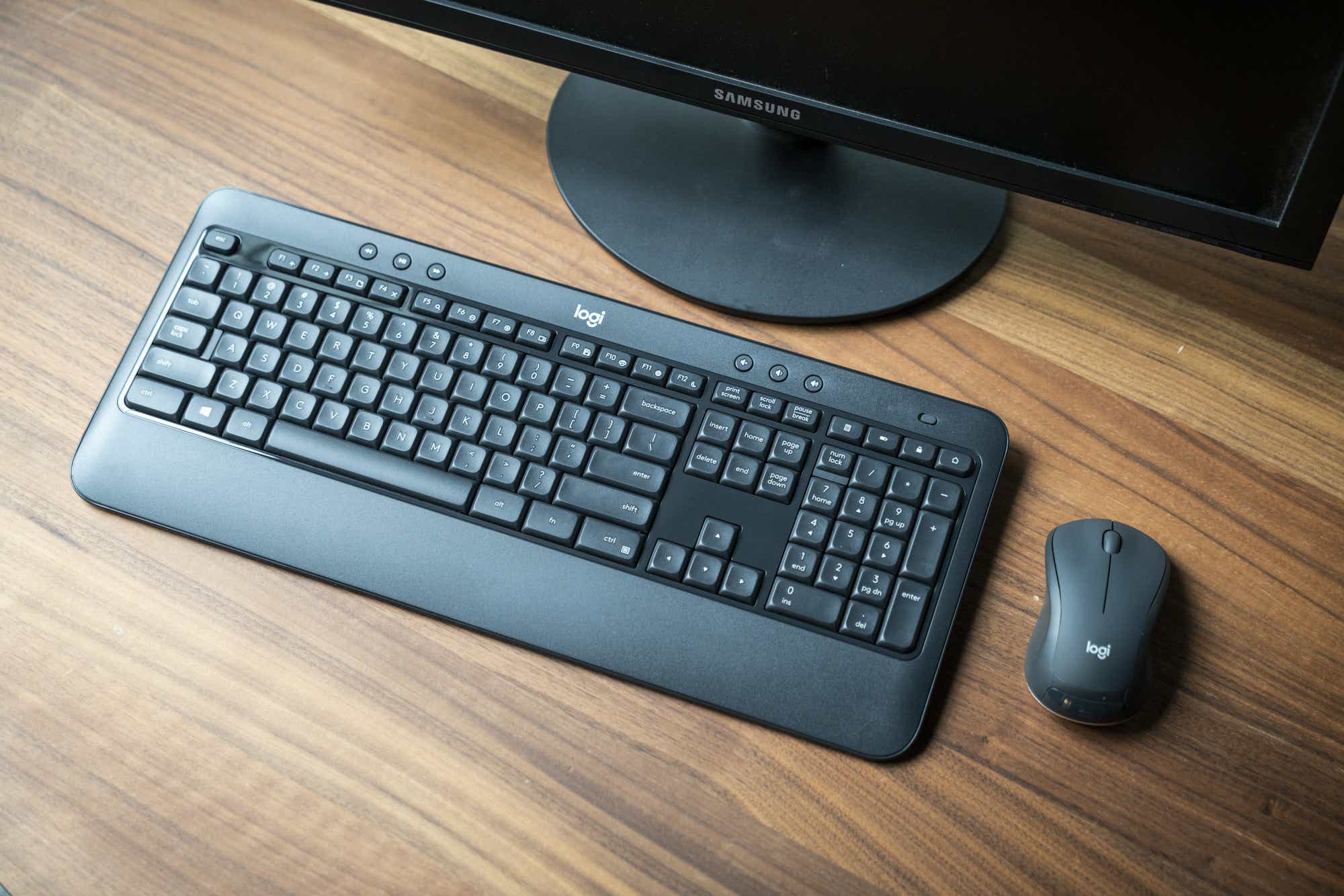
Pros
- Quiet yet tactile keys
- Programmable function keys and mouse gestures
- Roomy, comfy design
Cons
- Too bulky for mobile use
- Limited MacOS support
Why I like the Logitech MK540 Advanced combo
Logitech does it again with the MK540 Advanced combo. It might not have the convenience of backlighting that the K800 offers, but it hits all the other important features for productivity: a roomy layout, dedicated media buttons, a numpad, programmable keys, and tactile typing. In addition to all that, the keyboard comes with a decent wireless mouse, that’s also programmable, so you’re good to go.
This budget combo isn’t especially good for gaming, and you might find your multi-device options (especially on MacOS) limited. But if you’re in desperate need for a keyboard and mouse, you need them wireless, and you want to spend as little money as possible, then this is the combo for you.
Who should buy the Logitech MK540 Advanced combo
Anyone who needs a keyboard and mouse for a desktop PC that didn’t come with its own, or who wants a quick-and-dirty setup for a laptop workstation, will be well-served here. But if you’re looking for a keyboard that can take a little gaming-grade punishment, or connect to devices over Bluetooth, check elsewhere on this list.
Corsair K65 Plus Wireless – Best wireless gaming keyboard
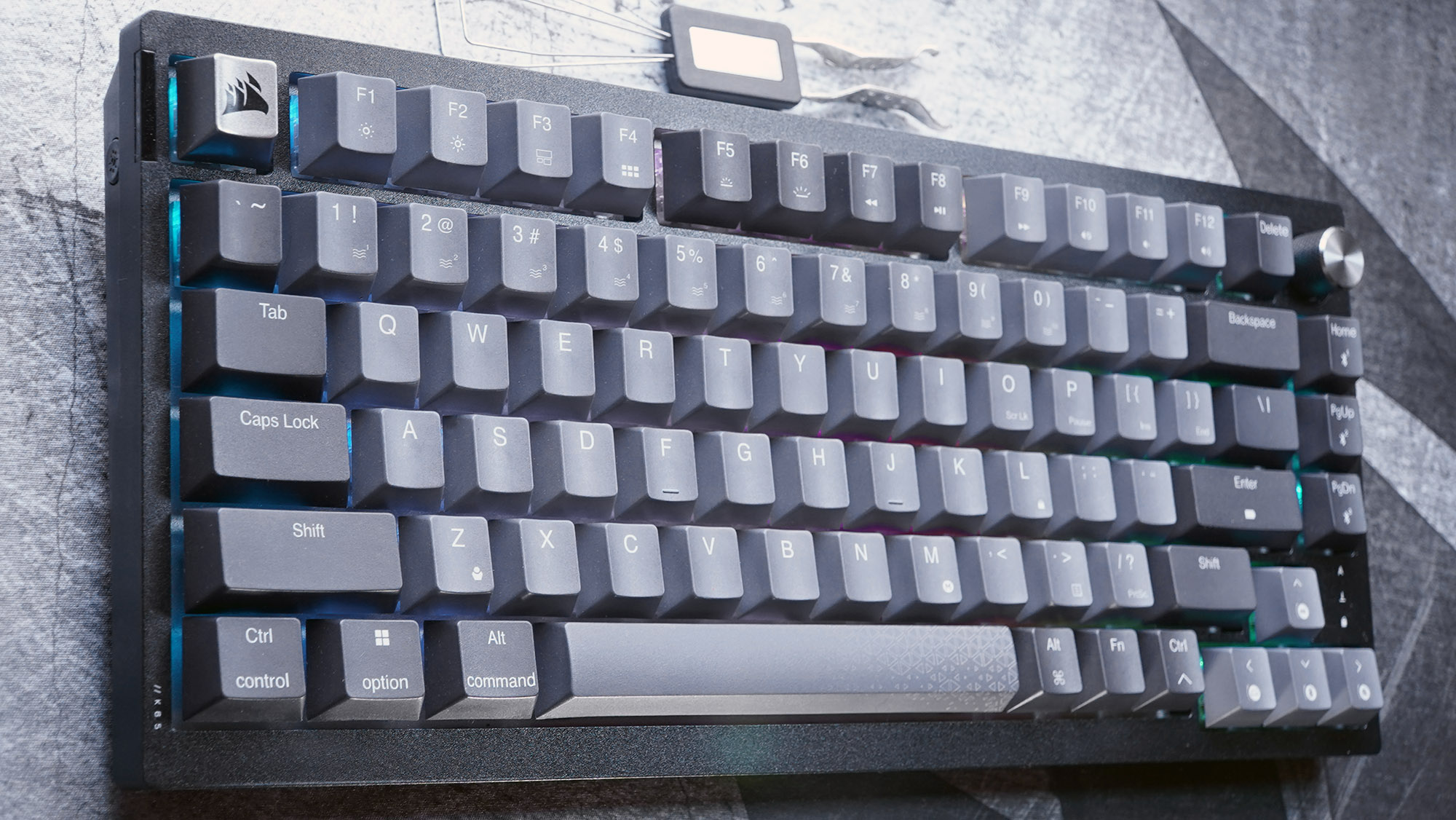
Pros
- Solid hardware
- Great value for wireless
- Tons of customization options
Cons
- No wrist rest
- Slightly awkward default layout
Why I like the K65 Plus Wireless
Corsair has been improving its designs for the last couple of years, incorporating more premium features and customization options. And it all comes together in the vastly redesigned K65 Plus, and does so at a shockingly low price.
This keyboard combines the popular 75% form factor, high-speed, multi-device wireless, high-quality switches, and hot-swappable key sockets, with Corsair’s typically good gaming pedigree. The result is a keyboard that does a lot, for a lot of users, for a relatively low price.
While the K65 skips a couple of exotic features like adjustable actuation or an OLED screen, and it doesn’t include a wrist rest in the box, it nails just about every other facet of design. It’s simply the best gaming keyboard you can get at the moment.
Who should buy the K65 Plus Wireless
Anyone who wants a high-quality keyboard with tons of options for customization, both hardware and software, will be pleased with this design. It also has some excellent bonuses, like PBT keycaps and a dedicated button for turning RGB on (or off, if you want maximum battery life).
The 75% form factor isn’t for everyone — you’ll have to look elsewhere, or wait for Corsair to offer more models, if you want a different format. It’s also considerably less “flashy” than other gaming keyboards, and doesn’t offer the heft and quality of a metal body.
Redragon K596 – Best ultra-budget wireless gaming keyboard
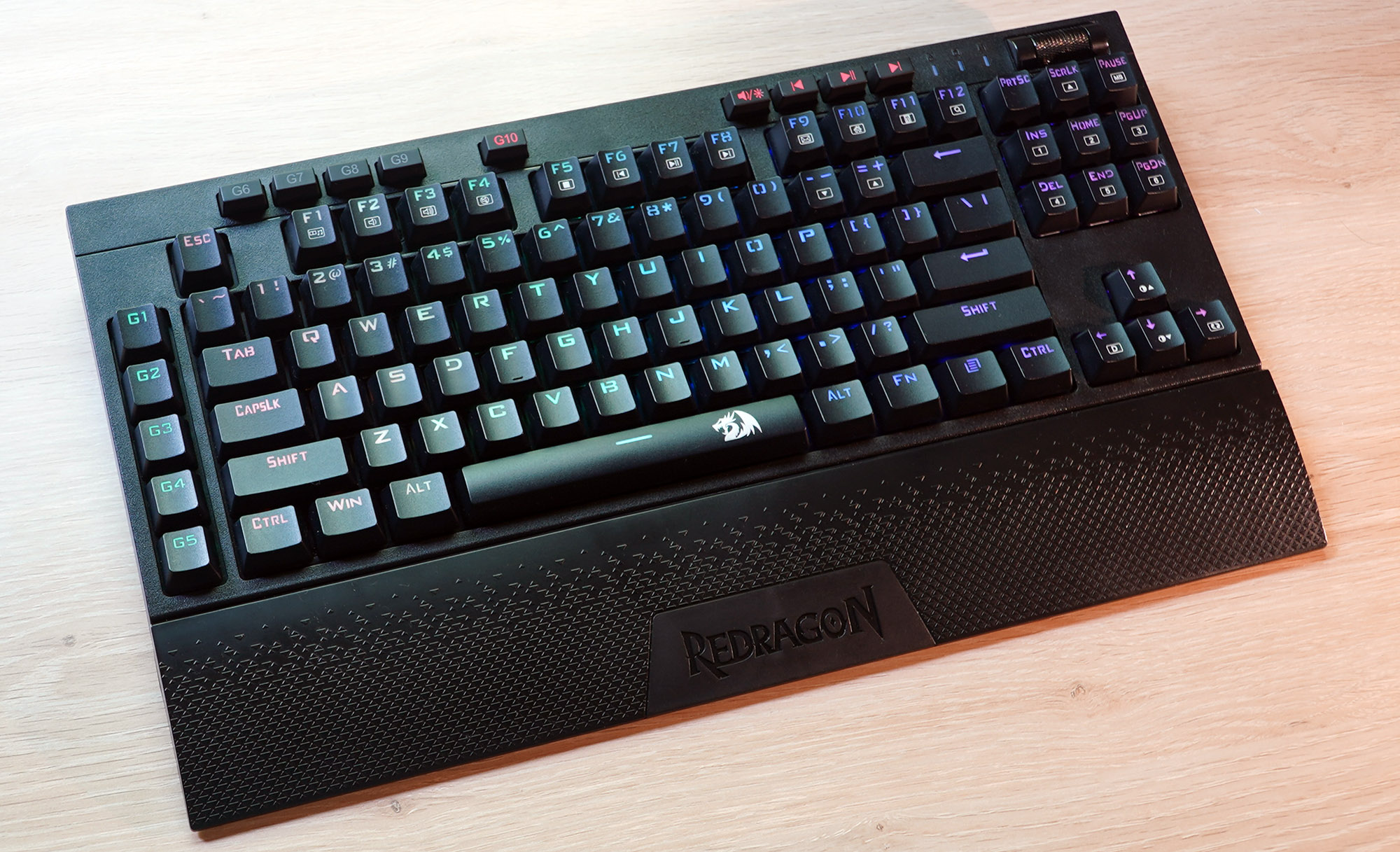
Pros
- Low price
- Included wrist rest
- Long battery life
- Volume wheel
Cons
- Ugly keycaps
- Can only program G keys
- No Bluetooth
Why I like the Redragon K596
Gaming keyboards usually don’t come cheap, and that goes double for wireless models. Redragon is a company that thrives in the bargain bin, and the K596 offers up most of the options of its full-priced competition at under 100 bucks. It also manages long battery life, a fancy volume wheel, and even a column of dedicated macro keys. Not bad.
Note that this is still very much a budget model from a budget brand, so it’s missing some of the fit and finish of more expensive keyboards. For example, you can only custom program those five G keys on the left. But for anyone who needs a deal, Redragon delivers, and throws a wrist rest into the package.
Who should buy the Redragon K596
There are a surprising amount of wireless keyboards that claim to be for “gaming,” even on the budget side of things. But Redragon is one of the few that walks the wireless walk, with most of the bells and whistles you’d expect and performance that doesn’t lag behind. Note that this is one of the few boards on this list that doesn’t offer Bluetooth — a fair trade for the value.
Nuphy Air V2 – Best wireless keyboard for travel
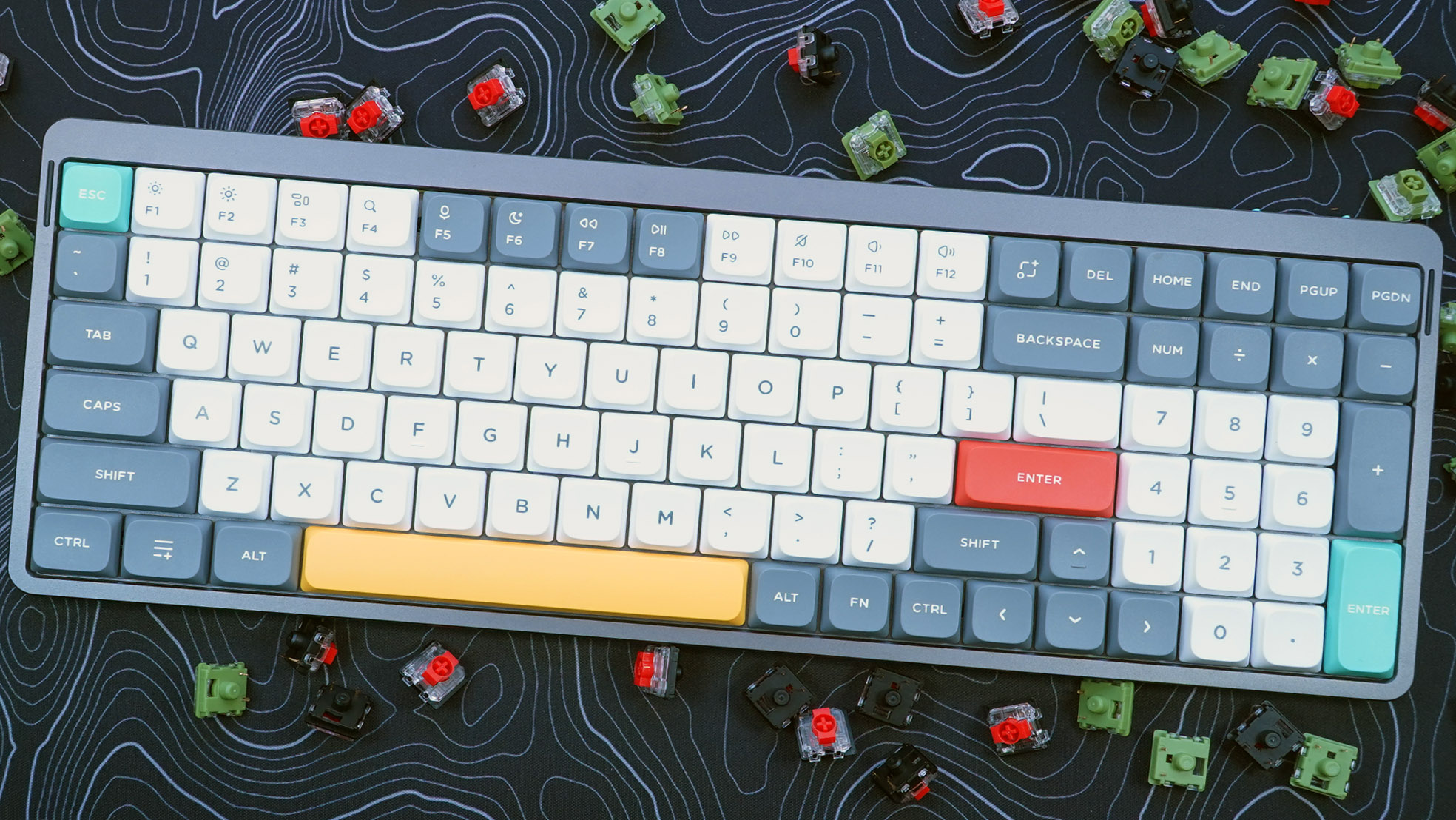
Pros
- High-quality switches
- Hot-swap sockets
- Colorful style
- Sound dampening
- VIA programming
Cons
- Cramped number pad layout
- That’s it, it’s a darn good keyboard
Why I like the Nuphy Air V2 series
Low-profile keyboards are sleek and travel well, but you give up a lot of the powers of a mechanical keyboard by going with a more compact design. Or do you? Nuphy’s Air series wants to cram as many features as possible into the teeny-tiny keyboards, and for the most part, it does just that.
Metal body? Check. RGB lighting? No big deal. PBT keycaps? Yup. There’s even interior dampening for a wonderfully “thocky” feel, and premium switches customized by the manufacturer. And like a lot of the keyboards on this list, you can customize your layout and macros with browser-based VIA software.
But the most impressive inclusion here is that Nuphy made the Air keyboards hot-swappable. There are a lot fewer options with Gateron low-profile switches…but Nuphy sells a handful of customized switches itself, instantly upping your choices when you order. It doesn’t hurt that the keycaps and case colors are poppy and stylish.
Who should buy the Nuphy Air V2 series
If you’re looking for a keyboard that travels as well as it looks, the Air V2 series is available in full-sized, 75 percent, and 60 percent form factors. (I’d recommend the 75 for a good balance between size and practicality.) It gets this slot over a limited number of competitors thanks to cramming as many features as possible into a high-quality, super-slim package.
Oh, and it doesn’t hurt that the keyboards are a lot cheaper than you might think based on the features and materials. Depending on the size and switch choices, they range from $100 to $140 at standard prices.
Logitech Casa – Best all-in-one travel option
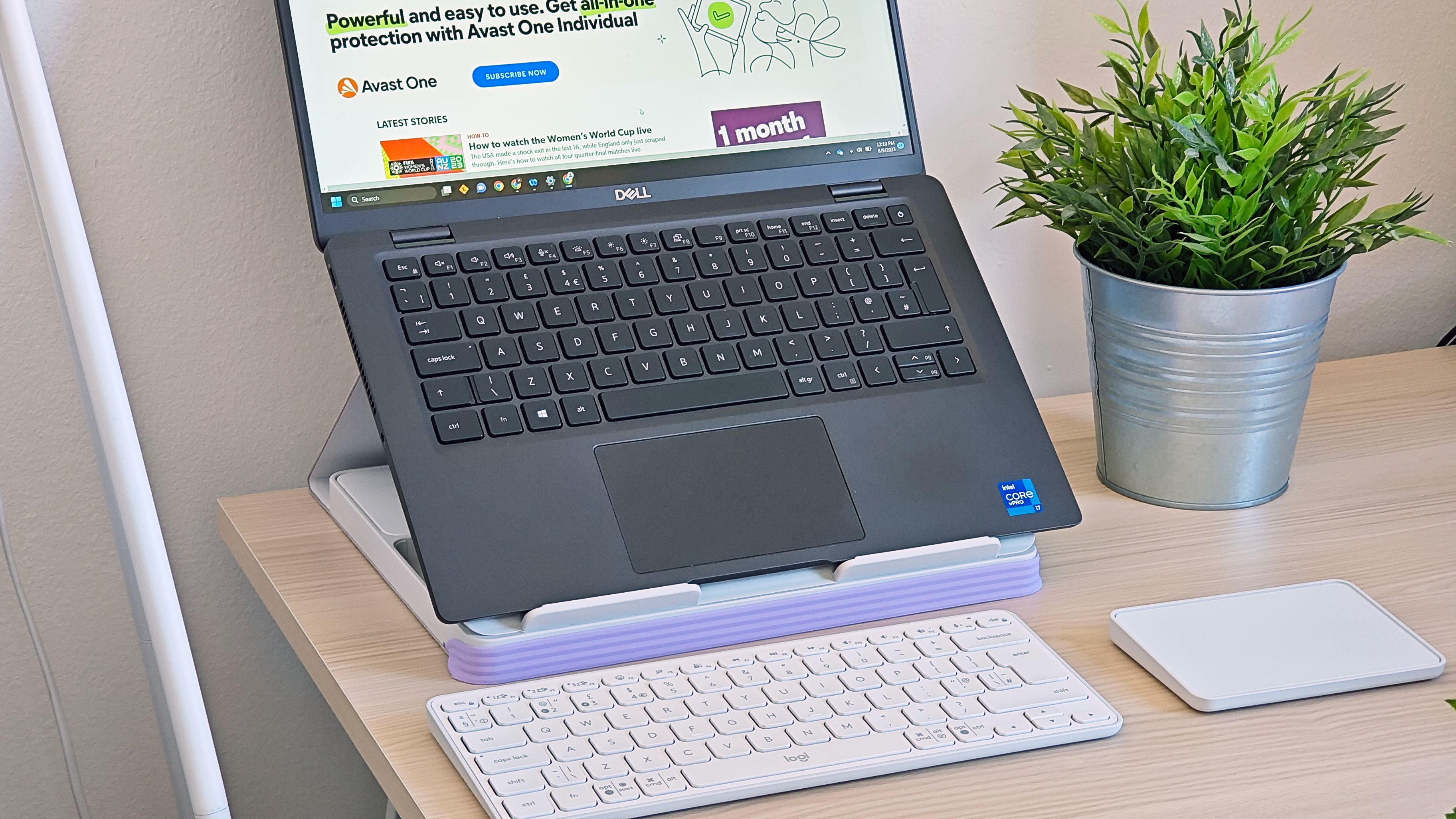
Pros
- Clever, aesthetically pleasing design
- Excellent battery life
- Range of remappable keys
- Makes working-from-home more ergonomic
Cons
- Not travel friendly
- Expensive
Why I like the Logitech Casa
If you need something a little more comprehensive for your travel needs, Logitech’s Casa might just hit the spot. It’s a keyboard and touchpad set that also comes in a swanky bento-style case, which doubles as a stand that significantly elevates your laptop. As an all-in-one solution for those who want to set up an office-style workstation on the go, it’s a pretty neat little package.
It is on the pricey side, though — for the same price you could get a laptop stand, keyboard, and touchpad and save a bit of dough, albeit without the neat travel-friendly design.
Who should buy the Logitech Casa
If you can’t stand typing on your laptop but you prefer a touchpad to a mouse, then this is the perfect package for you. It’s also surprisingly stylish in its all-in-one case, which folds down into a portfolio for grab-and-go convenience.
The option to raise your laptop screen may appeal, though there are easier ways to do that on the go. There are certainly cheaper ways to do all three.
Keychron Q Max series – Best high-end mechanical keyboard
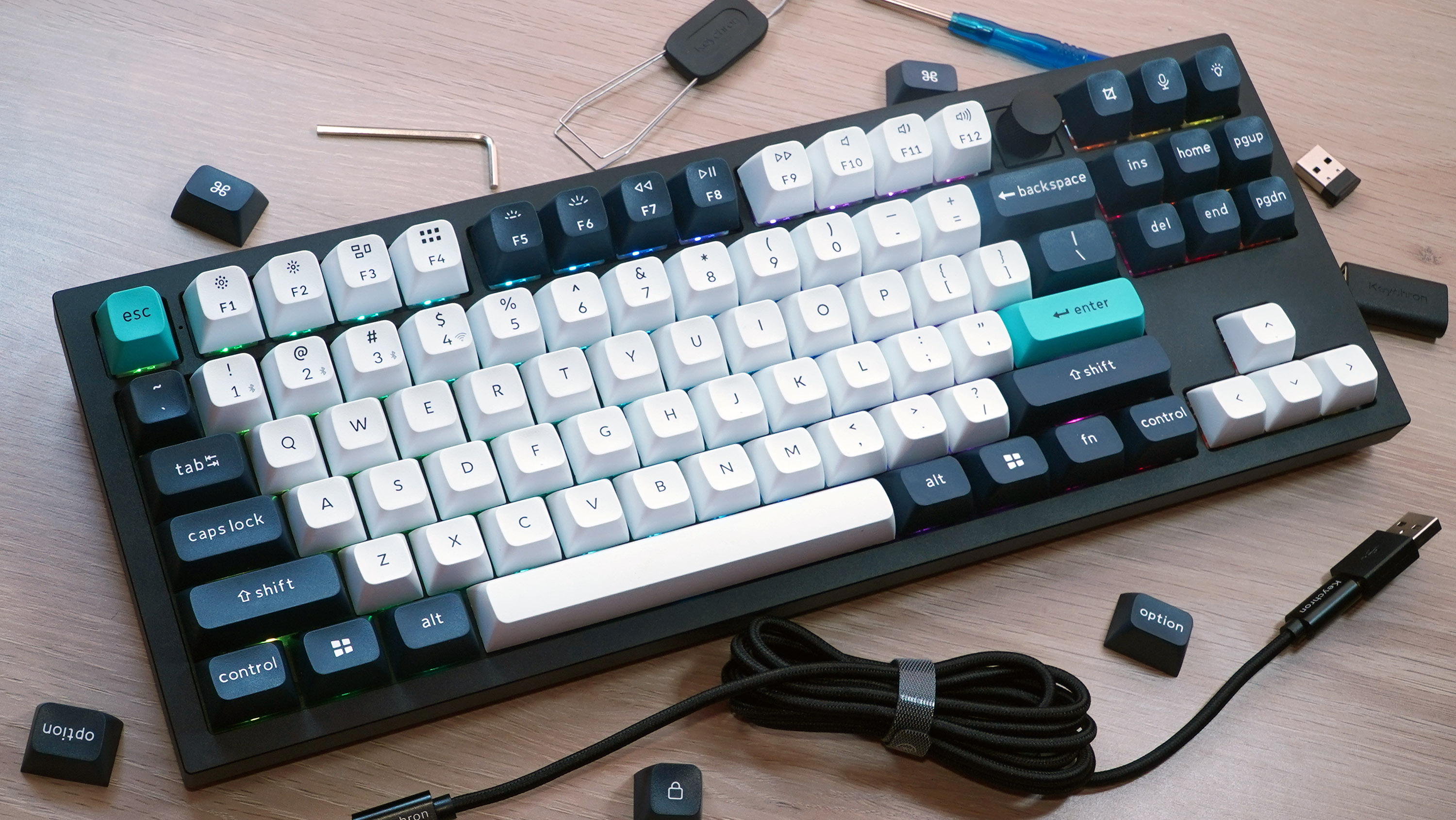
Pros
- Tons of features
- Excellent typing
- Improved 2.4GHz wireless
- Endless customization
Cons
- No adjustable feet
- No wrist rest
Why I like the Keychron Q Max series
For the last couple of years Keychron has been absolutely killing it with its high-end Q series. These mechanical boards make features previously available only via building your own or spending a fortune on a boutique design available to everyone, like full aluminum bodies, gasket-mounted PCBs, and easy, open-source programming with VIA. They’re about as good as you can get for a standard design.
The Q Max series takes these designs and shores up their one weakness: reliance on Bluetooth. While Q Max keyboards have multi-device Bluetooth available, they’re also packing standard 2.4GHz wireless with a USB dongle, making them ideal for use with a hefty desktop PC (and they even do alright as gaming boards).
With a wide variety of layouts like the TKL-sized Q3 Max above, there’s a keyboard in this series for just about anyone, including split “ergonomic” designs. They’re fantastic as stand-alone purchases, or bases for your custom dream build with replacement switches and keycaps.
Who should buy the Keychron Q Max Series
If you’re ready to step up to a premium mechanical keyboard design, one of these Q Max models should be at the top of your list. At the time of writing they’re available in full-size with number pad, TKL, 75%, 65%, and compact “1800” sizes, plus oddball Alice and left-handed models. There’s even a Happy Hacking Keyboard clone version, all of which come with hot-swap switch sockets and RGB lighting.
They’re great on their own with no extra mods, with the only real downside being so-so stabilizers. But you can swap those out too if you’re okay with opening the case, and the rest of the board is just as customizable. They can be custom-programmed, too, so both newbies and veterans are welcome.
Keychron’s high-end boards are on the pricey side, even if they aren’t as expensive as the boutique builds they’re inspired by, so bargain hunters should hunt somewhere else. And while they offer 2.4GHz wireless and wired options for gamers, the lack of game-specific software features means that there are better choices if you want to slay first and type later.
Keydous NJ80-AP – Best typing experience
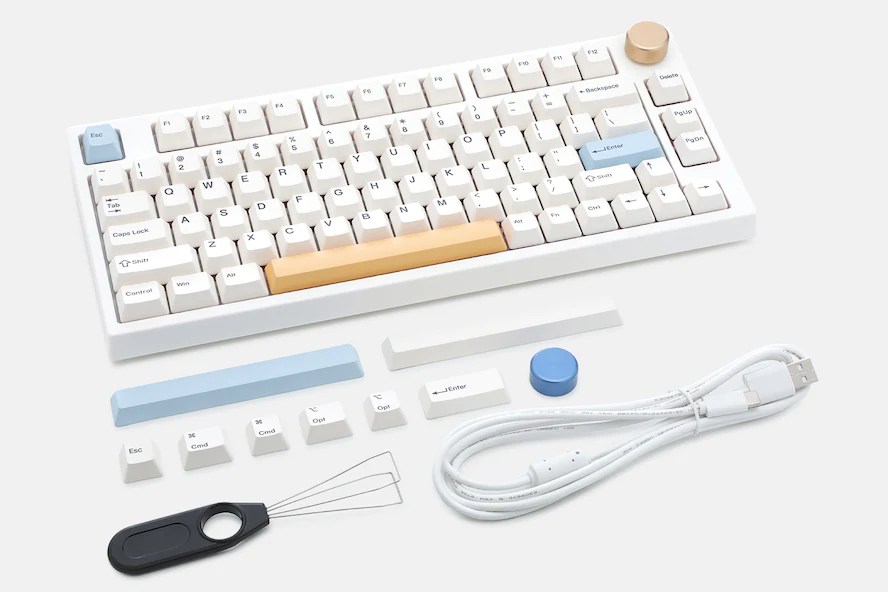
Pros
- Amazing typing experience
- High-quality parts
- Bluetooth and 2.4GHz wireless
- Long battery life
Cons
- Clunky software
- Plastic case
- A bit heavy
Why I like the Keydous NJ80-AP
Keychron gets the recommendation for an all-around mechanical keyboard. But if what you really want is a fantastic “thocky” typing feel right out of the box, then this unassuming little keyboard is the best I’ve ever tested. It does this with a lot of high-quality components, like PBT keycaps, a brass plate, premium stabilizers, and lots of internal sound dampening. But the big magic is in the switches.
Keydous went with exotic, high-end switches from Kailh to make the NJ80-AP and its stablemates stand out. These “Blueberry Ice Cream” BOX switches have a ridiculous name, but with soft POM plastic housing, reinforced stems, and a factory-lubed sliding mechanism, they feel amazing. They’re the best I’ve ever seen come standard on a keyboard, and that includes boards that cost twice as much as this one.
The NJ80-AP also offers both Bluetooth and dongle-based wireless, RGB lighting, an aluminum volume wheel — all the standards from a high-end mechanical design. Its plastic case and fiddly, proprietary programming software are a disappointment, but for satisfying typing out of the box, it’s simply the best around.
Who should buy the Keydous NJ80-AP
If you’re looking for a standard design with absolutely amazing typing, look no further. The NJ80-AP delivers, and if you want something bigger or (slightly) smaller, the same features are available in 65% and compact “1800” layouts (full number pad, slightly squished). Just make sure to order the one with those fancy switches.
But on the other hand, the software leaves a lot to be desired, and you can get keyboards with better all-metal bodies or faster wireless by spending a little more. And if you really want to go all out, you can get most of the way towards the high-quality typing of this board by ordering the same switches online and putting them in another board with hot-swap capability.
It’ll cost a lot — Keydous designs are on the cheap side of the high end — but if you’re dropping more than three digits on a keyboard anyway, it’s a legitimate option.
K780 Multi-Device Wireless Keyboard – Best full-size multi-device option
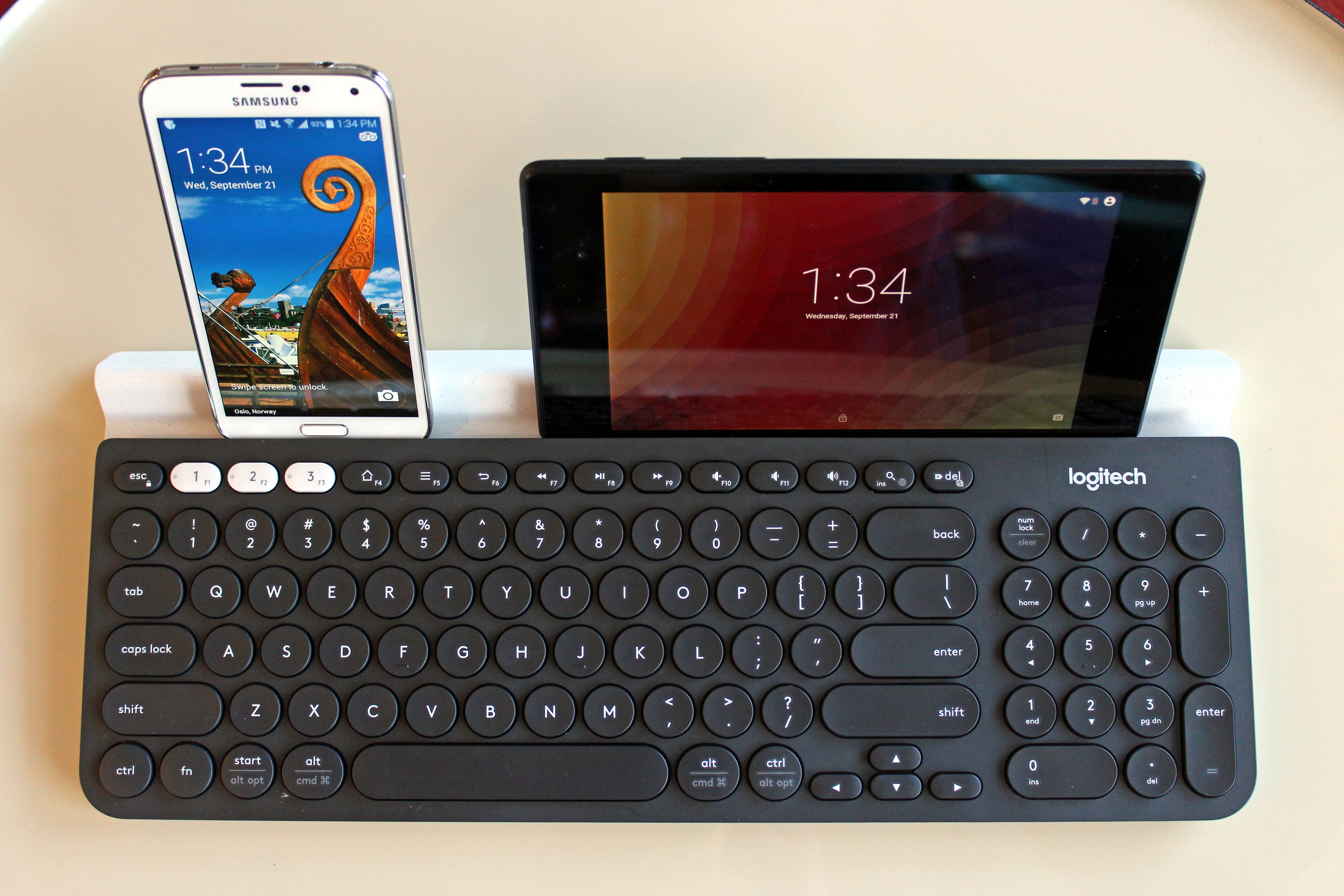
Pros
- Works with all major platforms
- Can toggle between three paired devices
- Quiet keys with great travel
Cons
- Not built for portability
Why I like the Logitech K780
If you like the convenience of a Bluetooth keyboard that can switch among different devices, but don’t require the compact layout of the MX Keys Mini, Logitech’s K780 Multi-Device Wireless Keyboard promises to be the one keyboard to rule all your computing gizmos. Indeed, it’s fully compatible with Windows, Mac OS, Chrome OS, Android, and iOS for fast and effortless switching between your computer, smartphone, and tablet.
It also costs a good deal less than the MX Keys Mini, and offers a roomy layout with a numpad. The integrated device stand is especially good for phones and tablets up to about ten inches in size — like the standard iPad Air. Anything bigger might need its own separate stand. That makes this an excellent companion for a multi-device desk…though it doesn’t exactly pack away well.
Who should buy the Logitech K780
If you’re constantly switching between a PC and a phone or other mobile gadget, this keyboard is exactly what you’re looking for. The dedicated keys for switching gadgets and the integrated stand make it an excellent way to save time and space on your desk.
Logitech Ergo K860 – Best ergonomic wireless keyboard
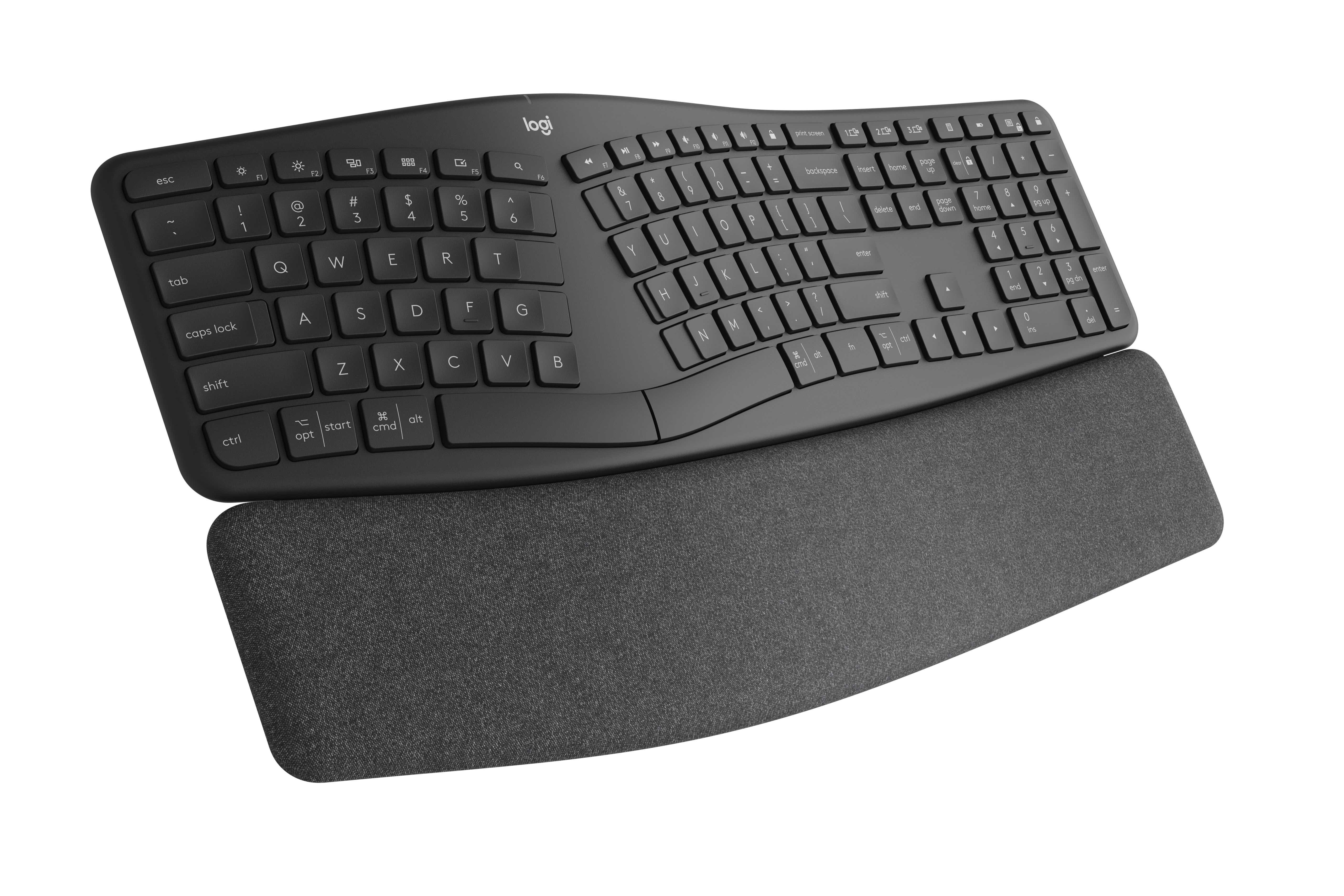
Pros
- Curved and split ergonomic design
- Comfortable wrist support
- Palm raise feature lets you adjust height for sitting or standing
Cons
- Requires some time to get used to split design
- Expensive
Why I like the Logitech Ergo K860
Logitech’s Ergo K860 has finally conquered our skepticism about awkward ergonomic keyboards. In the course of our review, there was a marked improvement in typing comfort and reduced muscle tension, all without sacrificing productivity to a steep learning curve.
It’s a little expensive compared to a conventional wireless keyboard, but if you’re struggling with comfort, the K860 is the only ergonomic keyboard we’d heartily recommend. If you need a more compact, affordable version of Logitech’s curvy keyboard design, check out the Wave Keys instead.
Who should buy the Logitech Ergo K860
Ergonomic keyboards aren’t the easiest to find, especially with big, comfy integrated wrist rests. Among major vendors it’s basically this design and the Microsoft Ergonomic Keyboard, which is wired. So if the split, angled layout with low-profile keys is what you want, the K860 is the best game in town.
If you aren’t trained in strict home row-style typing (index fingers on F and J, et cetera), the split layout may cause a headache. Try the Wave Keys instead if you want bigger, more responsive individual keys and a continuous layout that still has a comfy wrist rest integrated into the design.
FAQ
What’s the difference between a Bluetooth keyboard and a wireless keyboard?
Wireless keyboards connect to a PC in one of two ways: via Bluetooth or a USB receiver. Wireless keyboards that connect via a USB receiver or dongle can only connect to a computer or device if it has a USB port. Bluetooth connectivity on the other hand does not require any dongle or extra receiver and can therefore easily connect to other Bluetooth-enabled devices without the need for any ports. Additionally, Bluetooth keyboards tend to cost a little more but also offer longer battery life.
While shopping, you may find that older devices do not support Bluetooth. However, if you need a keyboard to work across different platforms on newer devices, a Bluetooth-enabled model is the way to go.
Can a laptop be used with a wireless keyboard?
Yes, you can use a wireless keyboard with a laptop without issue. Depending on whether you are using a wireless USB dongle keyboard or a Bluetooth keyboard, you just need to connect to the laptop and then you are good to go. This is true if you wish to connect a wireless keyboard to your tablet or 2-in-1, as well.
Do wireless keyboards need special batteries?
Usually wireless keyboards are powered using either rechargeable or disposable batteries. Wireless keyboards with rechargeable batteries will just need to be plugged into an external power source such as a computer or wall outlet when the battery is low. Otherwise, wireless keyboards with disposable batteries will need those batteries to be replaced when they die. The most common types of batteries these keyboards use will be either AA or AAA alkaline batteries.
Are wireless keyboards good for gaming?
Wireless keyboards are a fantastic option for most people, but they have a few limitations when it comes to gaming. Wireless keyboards can produce some slight latency issues between the keystroke being made and it being registered by your computer. This lag can be especially frustrating when playing games that require fast reaction times or in competitive environments — the latency may in some instances lead to a competitive disadvantage.
That being said, wireless technologies have improved immensely in recent years and any lag or interference issues are becoming extremely rare with the latest technology. Most casual gamers will be just fine with a wireless keyboard — opt for 2.4GHz wireless over Bluetooth for the most reliable results. You can minimize interference issues by keeping other wireless devices away from your wireless keyboard, as well.
